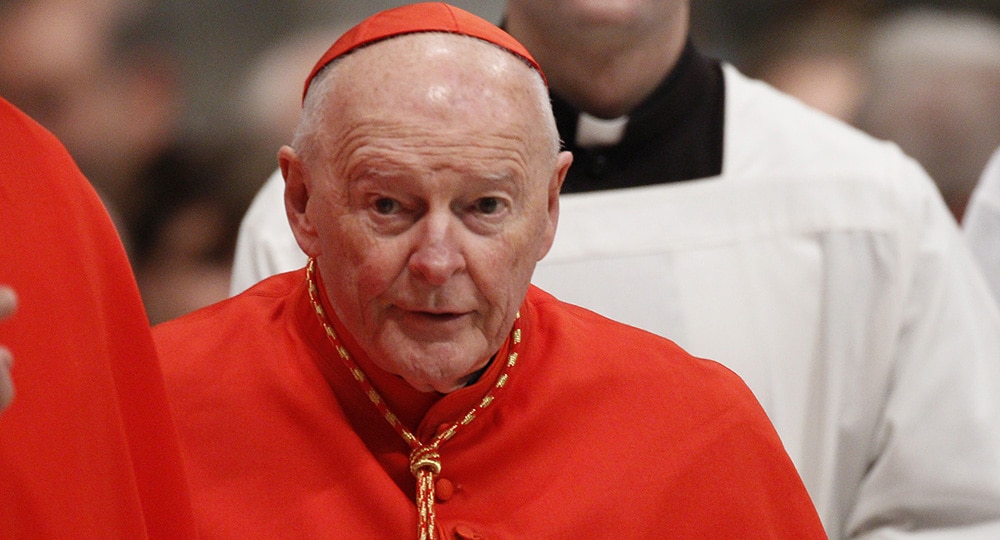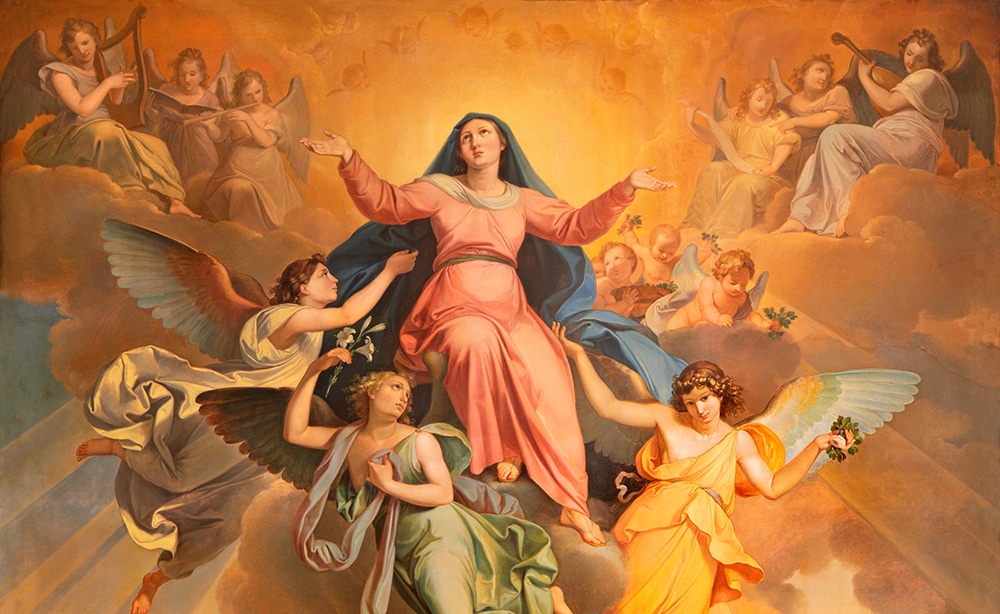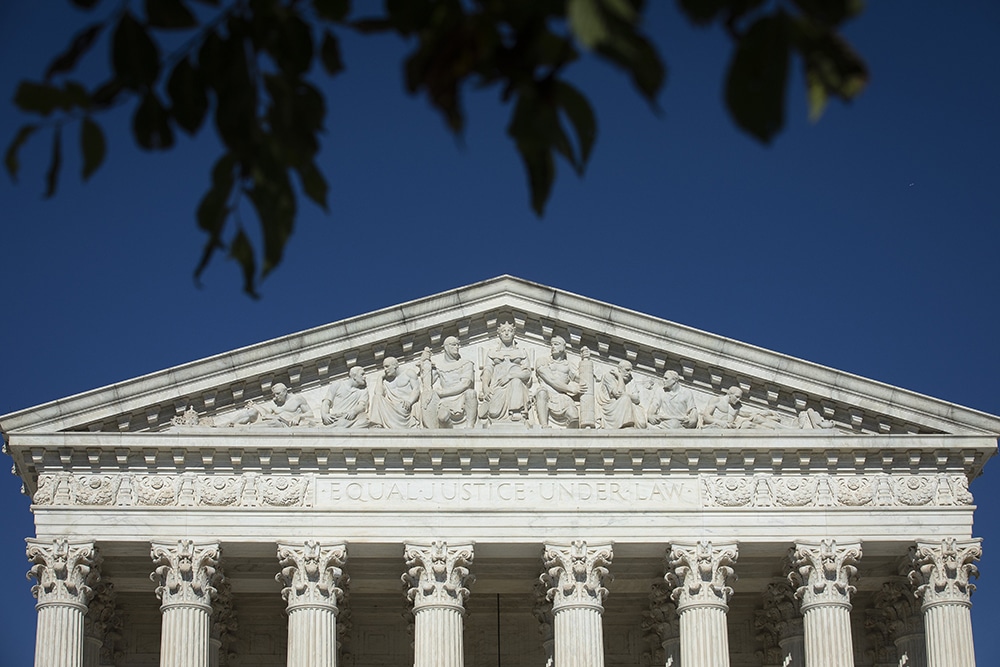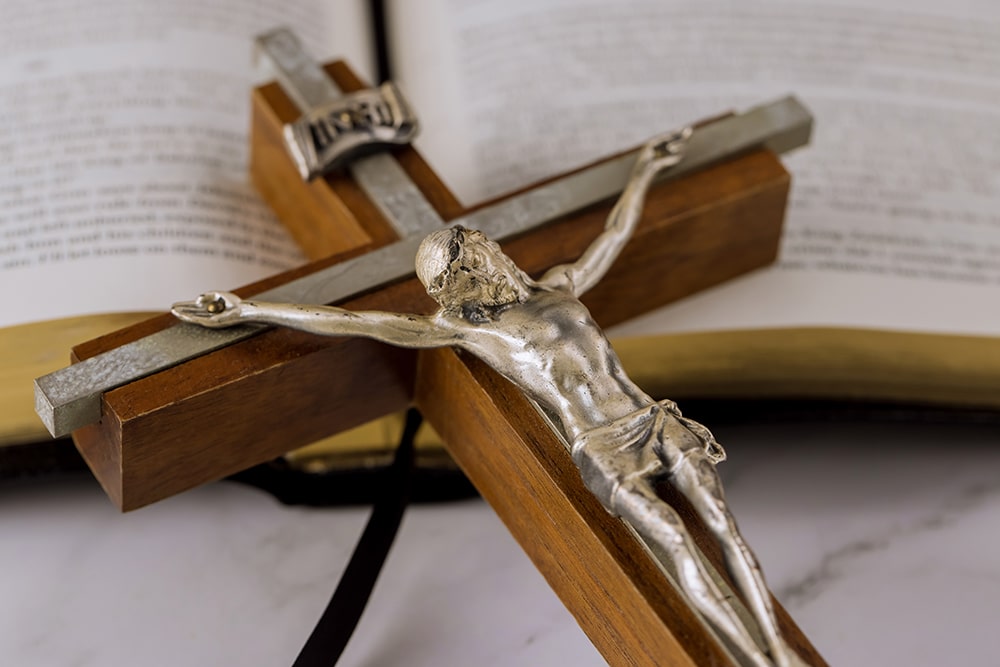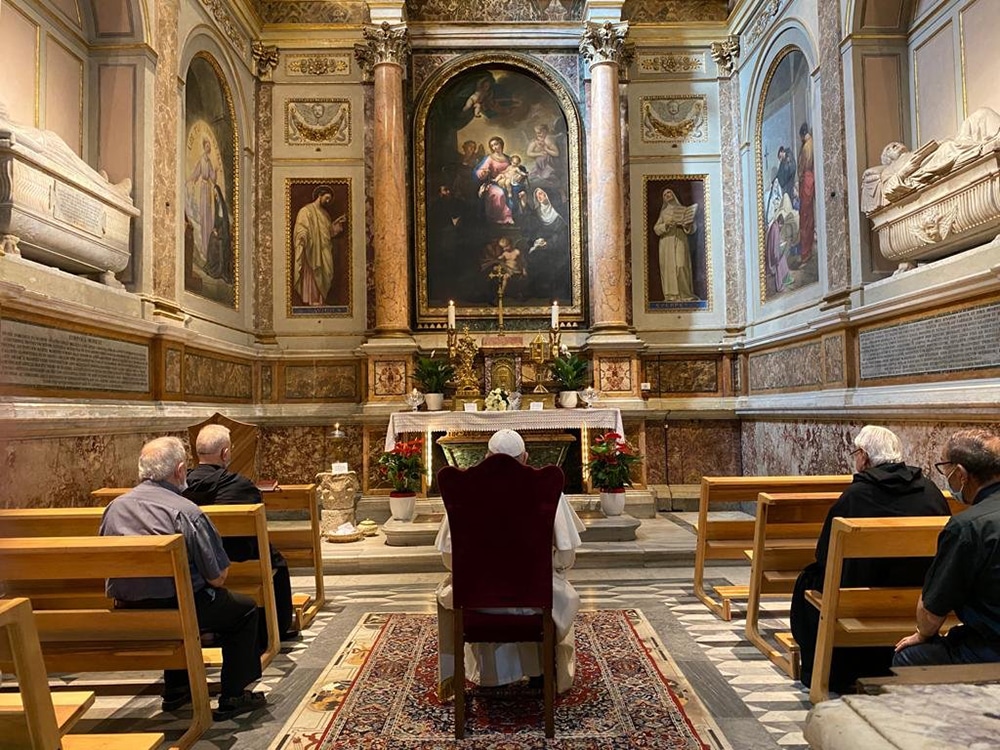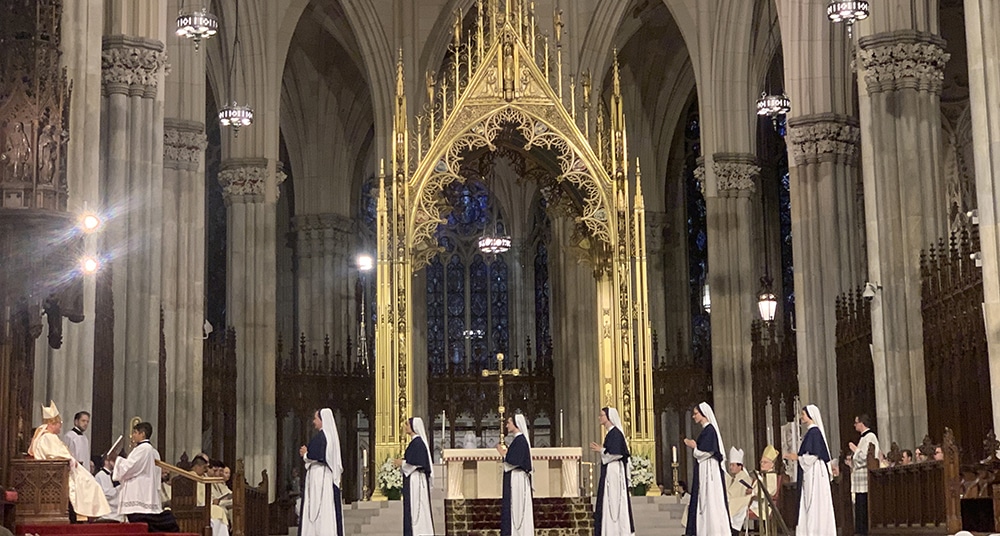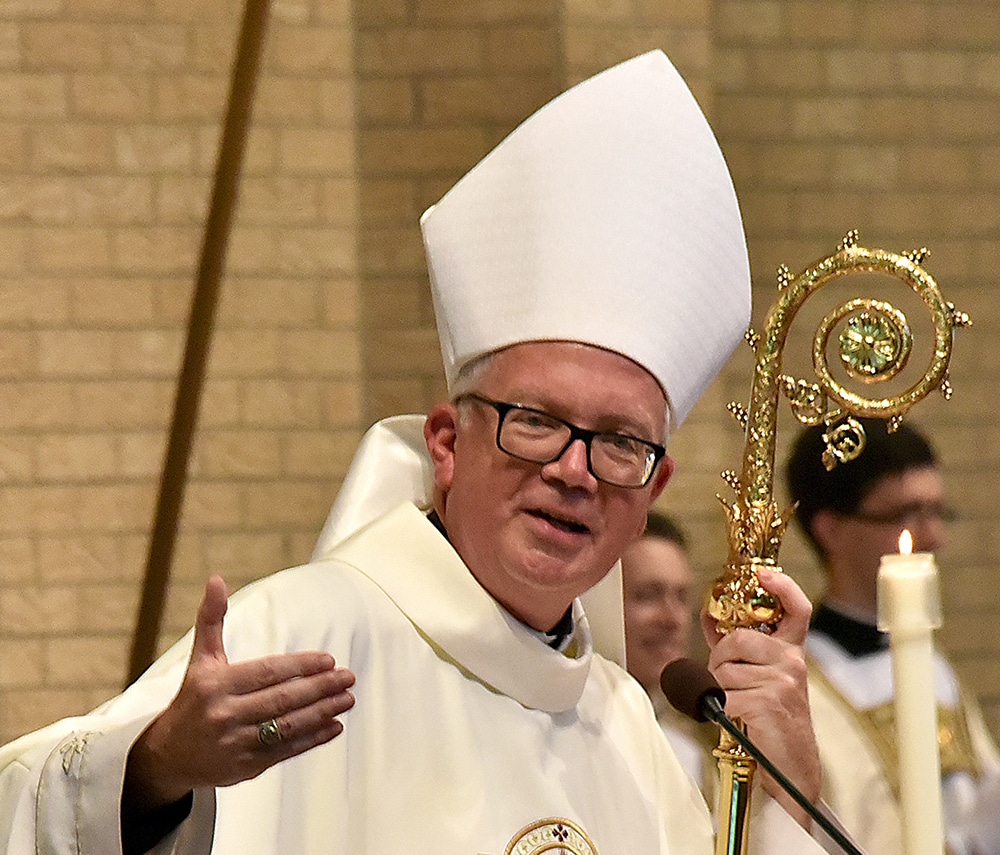It’s a simple concept in this faith of ours, the idea of repentance. Not easy to execute, perhaps, but simple enough to comprehend.
We are a fallen people, and as such we make mistakes; we make bad choices; we listen to the lies of the devil. We sin and fall out of communion with God. Yet our merciful Father, heaven be praised, welcomes us home again. Like the prodigal son, we only have to return to him, weak and ashamed though we may be, to receive his unconditional loving embrace. This is what our faith teaches us.
This teaching is what we instill in our children as they begin to learn right from wrong and to sense the power and pull of their own free will. You may do wrong, my child, but if you turn your heart back to the Lord, if you admit what you have done, apologize and seek forgiveness, you will never be alone. The sacrifice Jesus Christ made for humanity 2,000 years ago on Mount Calvary has seen to that.
As the name of disgraced former American cardinal Theodore McCarrick once again appears in headlines — this time, and for the first time, as he faces criminal charges for sexual assault of a minor in Massachusetts some decades back — we are left grappling with scandal, more alleged horrific wrongdoing and the notion of repentance.
When last we heard of McCarrick, he was the subject of the long-awaited “McCarrick Report,” which provided some answers, but also sparked more questions. Prior to that was when McCarrick, who after being found guilty of horrific wrongdoing by a Vatican tribunal (a verdict he appealed) had been removed from the clerical state, was tracked down by an intrepid reporter who took a shot and knocked on his door.
When the reporter, Ruth Graham, then of Slate, asked McCarrick if he had done the things of which he had been accused, his response was: “I’m not as bad as they paint me. I do not believe that I did the things that they accused me of.” Believe? the reporter clarified. Is there room for interpretation? No, he responded.
In the same interview, McCarrick got more specific about the case of James Grein, a victim-survivor who accused McCarrick of decades of sexual abuse dating back to when Grein was a minor. It was Grein’s testimony about how McCarrick repeatedly touched him during the Sacrament of Penance that ultimately led to the Vatican’s verdict that the former cardinal was guilty of “solicitation in the Sacrament of Confession, and sins against the Sixth Commandment with minors and with adults, with the aggravating factor of the abuse of power.”
“The thing about the confession, it’s a horrible thing,” McCarrick told Graham. “I was a priest for 60 years, and I would never have done anything like that. … That was horrible, to take the holy sacrament and to make it a sinful thing.”
That August 2019 interview is the only “public statement” McCarrick has made since his fall from grace, and, when viewed through the eyes of faith, it was a pretty pathetic one.
On Sept. 3, McCarrick will be arraigned in a Massachusetts court of law. The 91-year-old might not be made to stand trial for his alleged crimes. But then again, he might be. If he does, he will have a final opportunity to exhibit public remorse about what have become very public sins. He will have a chance to admit his wrongdoing, to say he’s sorry and to ask for forgiveness. This is an opportunity he needs to take, for the healing of those who survived his abuse and for the good of his own soul.
One hopes and prays, of course, that McCarrick has sought forgiveness privately in the confessional. But the appalling nature of his crimes, the position of power he once held within the Church, and the credibility of the Church as a whole demand a public reckoning.
There are undoubtedly some within the Church who are worried that such a public admission of guilt would lead to future lawsuits and damages. But any financial fallout is far less important than the damage done to the Church as a whole when self-proclaimed Christians fail so completely to act like Christians.
Until McCarrick admits his sins and publicly expresses sincere remorse, the reverberations of his sin will continue. And the Church will continue to struggle to heal.
Our Sunday Visitor Editorial Board: Gretchen R. Crowe, Scott P. Richert, Scott Warden, York Young

